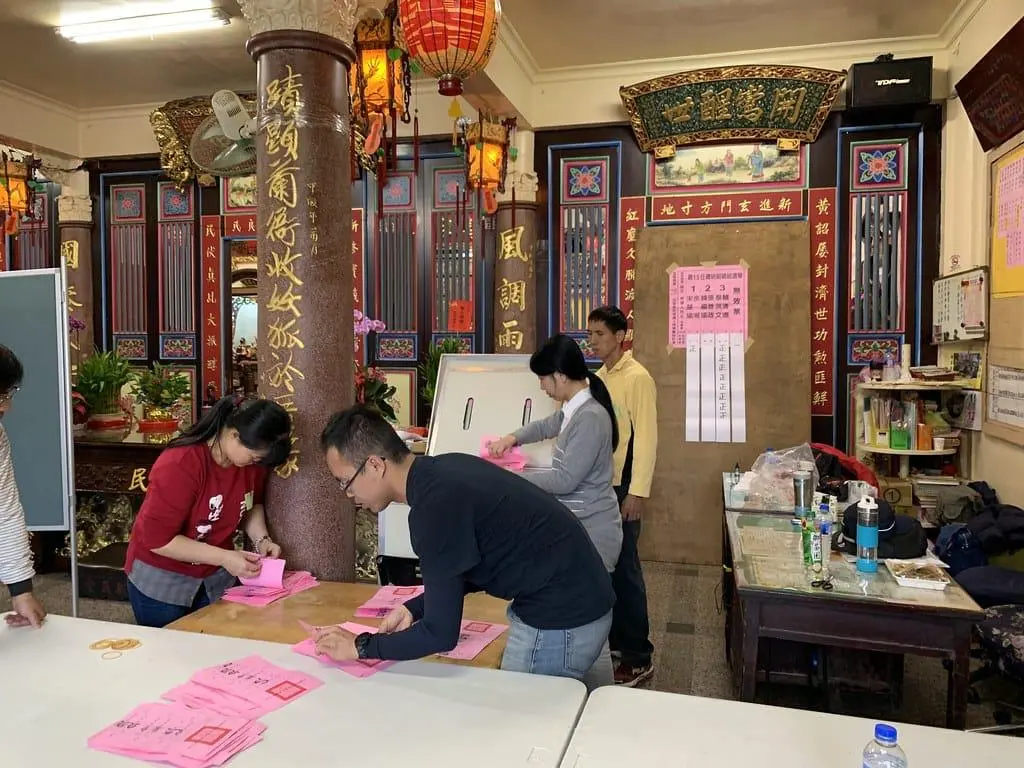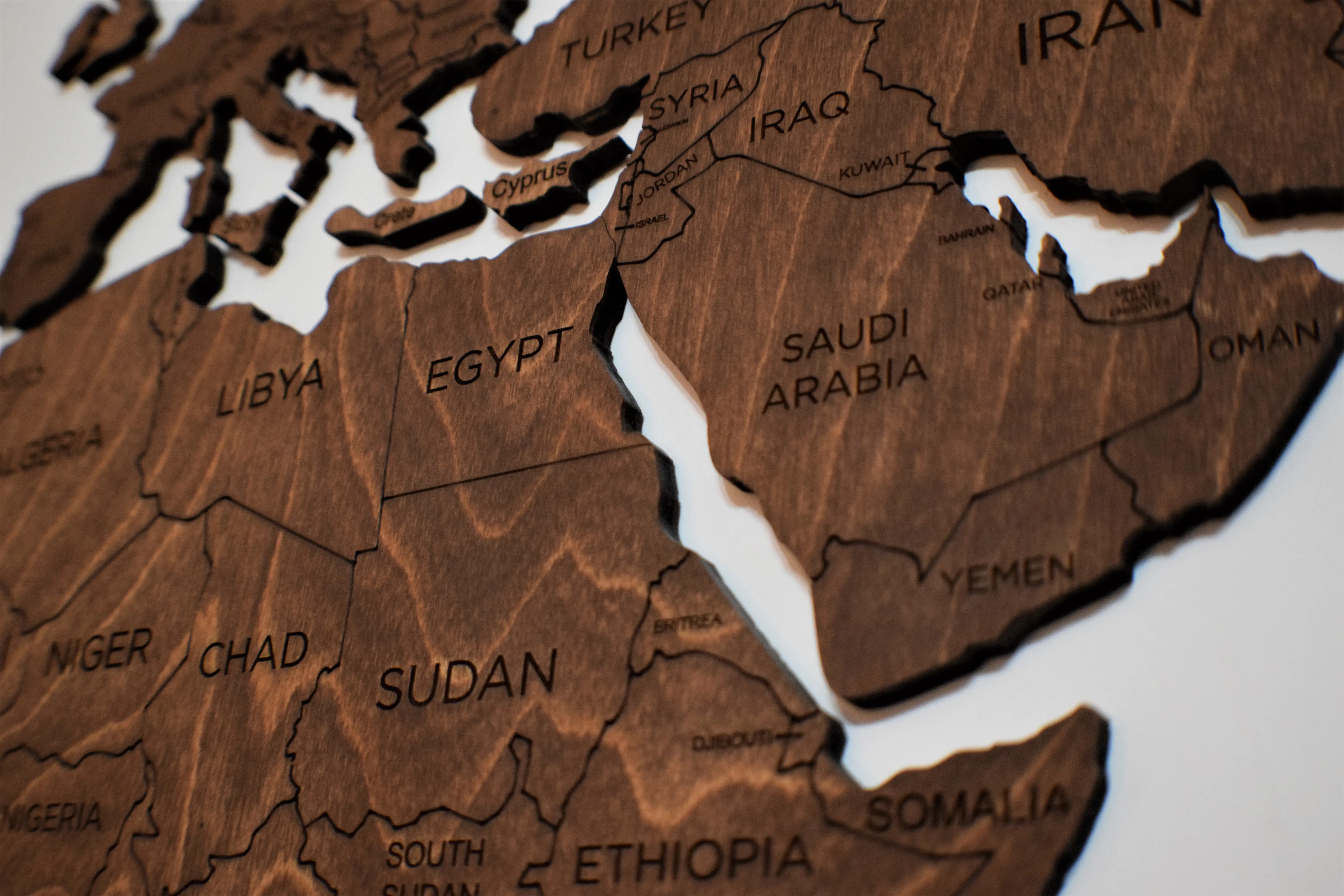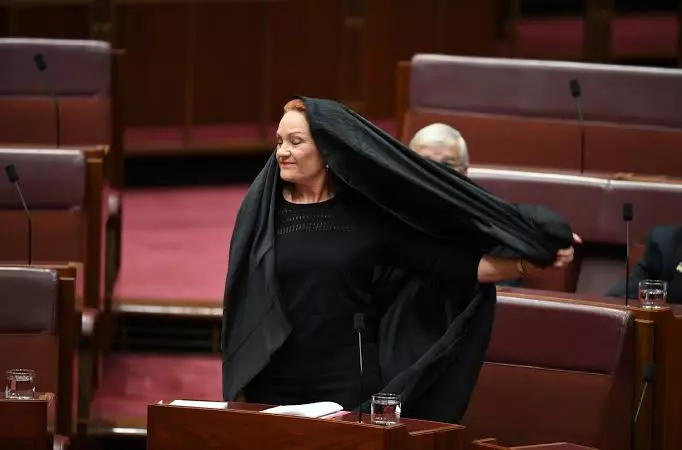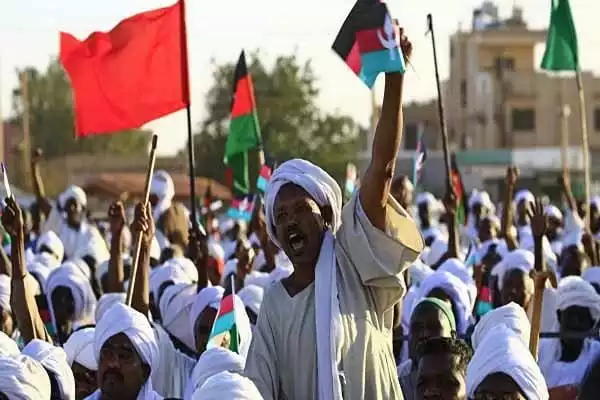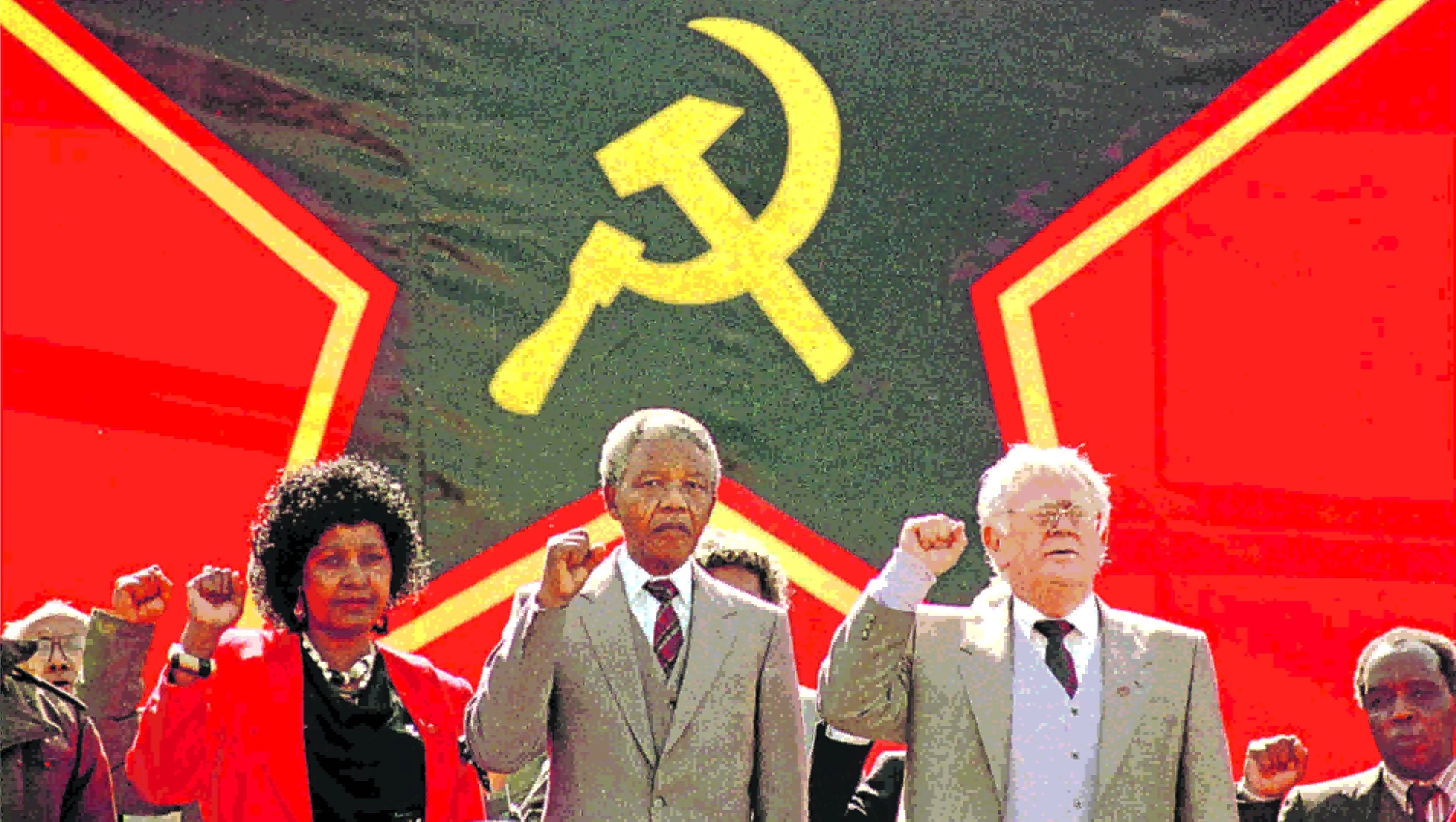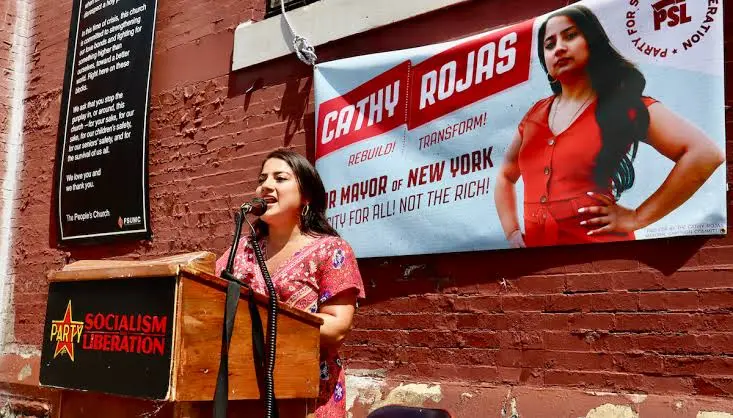US-Taiwan Relations:
How do you perceive the current state of relations between the United States and Taiwan, in the context of the elections that just happened?
All the major parties of Taiwan that participated in the elections held on 13 January have similar positions regarding the United States – subservience. However, there are levels and nuances in that position. While the ruling Democratic Progressive Party (DPP) has a severely warlike stance against China, which aligns perfectly with the United States’ Asia Pacific strategy, the opposition Taiwan People’s Party (TPP) has been more moderate and has tried to boost “Cross-Strait relations”.
The DPP managed to retain the presidency, with former VP Lai Ching-te, also known as William Lai, becoming the new president (scheduled to take office in May). Lai is a vocal advocate for “independence”; therefore, the position of the new Taiwanese government as far as the United States is concerned would not change. In fact, Lai may want to push Taiwan further into Washington’s orbit, if that is possible. He has vowed to strengthen Taiwan’s “defences” and ties with other “democracies”, referring to the US and Japan.
However, Lai’s plans may run into some obstacles because DPP lost its parliamentary majority. On 13 January, in addition to presidential elections, parliamentary elections were also held in Taiwan. DPP lost 9 seats from 2020 and ended up with 52 seats, same as the largest opposition party Kuomintang (KMT). TPP, on the other hand, won 7 seats. During late November-early December, KMT and TPP were in talks to form a coalition. Although those talks fell through, the two parties had agreed to work together in the parliament after the election, and to generate laws to curtail the president’s power and convert the Taiwanese administrative system from presidential to parliamentary, or at least with greater weight for the parliament. Both KMT and TPP ran on anti-war and pro-Cross Strait relations platforms in the elections. Hence, it remains to be seen if they keep their electoral promises and work together in the parliament to try to contain the new president’s aggressive pro-US actions that might endanger peace in the region.
Impact of Hong Kong Developments:
In what ways do you think recent developments in Hong Kong, such as the Jimmy Lai trial, impacted public opinion and decision-making in the Taiwan elections?
I do not think there was any significant impact of the Jimmy Lai trial on public opinion in Taiwan as far as the elections were concerned. While DPP and its presidential candidate (now president-elect) Lai Ching-te tried to use the recent events in Hong Kong to invoke anti-China sentiments and fear of “authoritarian Communist dictatorship” among the Taiwanese electorate, KMT and TPP promised the “Hong Kong model” for Taiwan, that is, Taiwan having similar sort of relationship with the People’s Republic of China as Hong Kong does: self-governance with special economic benefits. During my stay in Taiwan, I have come to the conclusion – albeit the limited communication that I have had with local people regarding politics – that a significant part of the Taiwanese population would prefer a Hong Kong type relation with PRC, because that would signify greater economic prosperity and less danger of imminent war for the island. That the Jimmy Lai trial and other political developments in Hong Kong did not have significant impact on the Taiwan elections, I base it on analysis of the pre-election opinion polls and the final results. All the pre-election surveys had indicated that DPP could retain the presidency with a reduced margin in the event of no opposition coalition between KMT and TPP, but that it would surely lose its parliamentary majority. That was precisely what happened in the elections. The DPP candidate, Lai, won with 40.17% of the votes cast – notably 10 percentage points less than an absolute majority. The KMT candidate, Hou Yu-ih, received 33.42% of the votes, while the TPP candidate, Ko Wen-je, came third with 26.41%. The anti-war vote got split between the two candidates who ran on anti-war proposals. Thus, if there was any impact of the recent developments in Hong Kong, it must have been minimal.
Influence of US Strategy:
How might the broader US strategy in the Asia-Pacific region impact Taiwan's stance on issues like reunification with China and its push towards independence?
President-elect Lai is an aggressive “independence” activist, belonging to the extremist wing of DPP. In 2017 he said in the Taiwanese parliament that he was a “pragmatic worker for Taiwan independence”. However, he has ruled out declaring independence during his tenure. “I would like to reiterate that Taiwan is already an independent and sovereign nation and thus we do not have a need to further declare Taiwan independence,” he said a few days before the elections. Lai is widely perceived as an extreme anti-China figure, but following his victory, he announced that intends to maintain the “status quo” in the Taiwan Strait and that his government will “use dialogue to replace confrontation” with Beijing. Yet, given Lai’s track record, it remains to be seen how he navigates the island’s relation with China once he takes office.
On the other hand, as for relations with the US, Lai, a Harvard graduate, is considered a “troublemaker” by Washington also. In July 2023 he expressed his hope that the president of Taiwan would one day be able to “enter the White House”. This comment created controversy in the White House because the United States prohibits top Taiwanese government officials from making official visits to Washington in order to maintain its formal recognition of the “One China principle”. It is worth mentioning here that the US, ostensibly the biggest friend of Taiwan, does not recognise Taiwan as an independent country. The official US position recognises Taiwan as a part of China, and the US does not have an embassy in Taiwan, only a consular mission. However, Washington continues to supply Taiwan with weaponry as part of its Asia Pacific strategy – the so-called Pivot to Asia launched by former US President Obama. The United States considers Taiwan an “unsinkable aircraft carrier” to be used against China in its possible future war against PRC. During the previous two presidential terms of DPP, Washington has increased its military “aid” to Taiwan, which DPP has displayed as an “achievement” of its government to ward off the Chinese “threat”. At the moment the US is in a quagmire in West Asia and another potential quagmire in Ukraine, but it has not suspended its Asia Pacific strategy of containing China, encircling China with over 300 military bases, including its military presence in Taiwan which should be considered illegal, as internationally Taiwan is recognised as a part of China.
Military Presence:
The presence of US troops in Taiwan has been mentioned. How do you believe this military presence might play a role in the electoral dynamics and public perception?
As I already mentioned, Taiwan forms part of the United States’ Asia Pacific strategy. Although foreign military presence in any country or territory is to the detriment of the local population, unfortunately the majority of the Taiwanese population has been brainwashed into believing that the US military presence in Taiwan is for the good of Taiwan, that it supposedly acts as a deterrent against a hypothetical Chinese invasion. The Taiwanese government routinely carries out island-wide air raid drills in order to prepare the population for a hypothetical Chinese air attack. There has been another recent development that has contributed to the militarisation of the society (loosely using the term “militarisation”). Over the last two years, the municipal administrations have designated basements or ground floors of tall buildings (both residential and official) as “air defence shelters”, again in preparation for hypothetical Chinese aerial bombardment. In July 2023, the civilian Taoyuan International Airport of Taipei was used for the first time for a military drill, which, interestingly, did not draw widespread criticism. The idea of a Chinese invasion has been normalised in the Taiwanese society, which is in contrast to the geopolitical reality. The Chinese government has repeatedly insisted that it is ready to wait for as long as it takes for Taiwan to reunify with the mainland by peaceful and diplomatic means, while the US government has announced that it will bomb the Taiwan Semiconductor Manufacturing Company (TSMC), the major player in global semiconductor production, in the case of a Chinese invasion of the island. With friends like this, one might wonder why Taiwan would need enemies.
In summary, the US military presence in Taiwan is overall not considered bad or dangerous by the Taiwanese people. None of the major political parties advocates against military cooperation with the US. This was reflected in their electoral campaigns as well. Although KMT raised slogans like “Make peace, not war” and TPP promised dialogue with China, none of them named the US military as a source of evil and danger for the island. Their anti-war stances were limited to insisting that they do not want any war with China.
Balancing National Interests:
Considering that Taiwan is considered part of US national interests, how do you see the balance between US national interests and the interests of Taiwan's residents in the context of the elections?
As far as I can see, US imperial interests (let us not call them US national interests) and Taiwanese national interests are conflated in political discussions in Taiwan. There also exists what I call a colonial hangover in the Taiwanese population, meaning whatever is Western is considered the best. You will see Western retail chains everywhere in Taiwan. People are crazy about wearing clothes from Western brands, not knowing, or perhaps not caring, that those clothes are manufactured in Malaysia or Bangladesh or India or Sri Lanka. A discount at Starbucks stores leads to long lines in front of the stores, although the coffee surely did not come from the US. Most of the food consumed in Taiwan is imported, like it happens in small islands without much arable land. In Taiwan the food items are mostly imported from the “collective West”, especially from Australia, New Zealand, Japan, and the United States, instead of importing them from China or India which are much closer to Taiwan and would have reduced the cost of food. I have come to know that Taiwan is actually forced, through numerous treaties and agreements, to import food from the Anglo-world, and the Taiwanese government – irrespective of which party is in government – pays this price in exchange of “security guarantees”. Yet the question remains, whose security guarantees? Definitely not Taiwan’s, because China is not known for militarily invading other countries, and Taiwan is its own territory so an “invasion” is meaningless. It is the United States’ security guarantees, meaning its policy of containment of China, which is imposed on Taiwan as its national interest.

US-China Relations Impact:
How do you think the current state of relations between the United States and China impacted Taiwan's electoral landscape?
Over the last decade, the US-China relation has deteriorated, not because of China. The US has tried to unilaterally “contain” China by installing military bases, fortifying existing bases, and creating “lily pads” (unrecognised military bases) precisely in those countries around China which have high levels of economic and commercial exchange with China. At the same time, the veritable US media muscle has bombarded the whole world with a negative image of China – an imperialist, expansionist China that, in reality, never existed. Interestingly, DPP – the “separatist” party of Taiwan – has expanded its power and held the presidency of Taiwan during these years. Correlation is not causation; however, the negative press about China impacts the collective psyche in Taiwan. A large part of the Taiwanese population truly believes that nationalisation of resources and industries, as done in China, is stealing from hardworking people. The myth of the self-made millionaire is ingrained in the minds of the people.
As for this year’s elections, the recent escalation in the US rhetoric against China, the Chinese responses, and the movement of warships in the seas around Taiwan were observed with interest and attention by the Taiwanese electorate. This created some tension, and could have swung a low percentage of the undecided voters towards DPP, but nothing in the US-China relation was too out of the ordinary, so there was no huge impact of US-China problems on the Taiwan elections.
Electoral Interference Concerns:
Allegations of vote buying and external interference have been raised. How could these concerns affect the credibility and integrity of the upcoming Taiwan elections?
Vote buying is the most common allegation associated with all elections around the world; Taiwan is no exception. There probably was some bribing of voters involved, though the highest amount of money was spent by the independent candidate Terry Gou who finally withdrew from the presidential race. Elections in Taiwan were not marred by violence either, unlike in many parts of South Asia.
The greater concern which drew more attention was external interference. The accusations were mostly directed at China and Russia, as government spokespersons of both countries had expressed negative opinions about Lai, the current president-elect. Both China and Russia described him as a “warmonger” who would take Taiwan further from peace and bring the region closer to a hot war. However, the country that actually interferes in Taiwan is the US. Even during the electoral campaign period, the US sent weapons to Taiwan, and announced more aid and military cooperation. Western media covered the DPP and its presidential candidate more positively than the other contenders. Nevertheless, these do not take away credibility of the elections. The people of Taiwan voted according to their interests; they expressed their opinion against the warmongering of DPP. It was the failure of the opposition to come together and take advantage of the anti-incumbency sentiment.
Internal Resolution and Remedy:
The perspective that Taiwan is a matter for China's internal resolution has been emphasised. How does this perspective shape discussions around foreign involvement in Taiwan?
In recent years, both KMT and TPP have emphasised on dialogue as the proper path to resolve the issue of coexistence with China. Neither mentions unification, but both highlight Hong Kong as the model for coexistence and exchange with PRC. DPP, on the other hand, has a secessionist approach, but it is contradictory. It must be explained that nobody in Taiwan claims that there are two Chinas. Essentially Taiwan too follows a One China principle, but in this principle it is Taiwan, the Republic of China (ROC), that is the “one true China” while PRC is a part of it. This is the reverse of PRC’s One China principle which is the UN-recognised One China principle.
President-elect Lai is an infamous secessionist, yet, in his post victory speech, he stressed on diplomacy as the means to relate and communicate with China. He also promised to maintain the status quo. This would indicate that despite his rhetoric, Lai would like to maintain status quo in Taiwan’s foreign policy. Whether the US would allow that remains to be seen.
Diplomacy and Relations for Stability:
The importance of diplomatic and personal relationships for Taiwan's stability has been mentioned. How do you envision Taiwan balancing relationships with both China and the USA?
Ko Wen-che, who was the presidential candidate of TPP, has emphasised on people-to-people diplomacy between Taiwan and PRC throughout his political career. When he was the mayor of Taipei, the capital, he put his policy into action and improved cross-strait relations, although in a limited manner as he was only the head of government of a city and not the head of state. I do not see TPP cooperating with DPP in the parliament. Instead a TPP-KMT collaboration seems more plausible. With their parliamentary majority, the two parties now have a greater capacity to implement Ko’s vision. In fact, even Lai has claimed that his government would maintain status quo in Taiwan. Therefore, during the next presidential term, Taiwan’s relation with China and the US would remain the same as now, unless something extraordinary happens.
Security and Economic Considerations:
Without specific reference, how do you think considerations related to security and economic ties influenced the decision-making of Taiwan's residents in the recent elections?
The Taiwanese electorate voted by taking into consideration the economic and security interests of Taiwan. China is the biggest export destination for Taiwan. Similarly, China is Taiwan’s neighbour, or the country of which Taiwan is a territory, in whichever way you wish to look at it. Basically, Taiwan has to coexist with PRC. If a war happens, it will happen on Taiwanese soil, and it would harm Taiwan the most. The island may be only an unsinkable aircraft carrier for the US, but for the residents of Taiwan it is their home, while for PRC Taiwan is a historical part of the national territory of China. Therefore, the Taiwanese electorate actually put its security concerns in its vote. That is why DPP lost its parliamentary majority, and only won the presidential election because of the opposition vote splitting. The vote of 13 January was, in reality, a reprimand vote against DPP. I hope the new president would keep this in mind when he deals with the US and Taiwan.
Editor's Note:
The views and informations expressed in the article are solely those of the author and may or may not reflect the views of The International. We believe in providing a platform for a range of viewpoints from the left.
"The International" belongs to you.✕
Please take a moment to read this. We apologize for any interruption, we want you to know "The International" seeks your valued support at this time. We've proudly served as a pioneering online platform, delivering ad-free media content. With only 2% of our readers opting for a subscription, any contribution you choose holds immense significance—whether it's an annual fee of $25 or a monthly payment of $2.5. — The "The International" Team, committed to providing you with enlightening perspectives. We want to highlight that this sum is even less than what you'd spend on a cup of coffee, yet it greatly aids in sustaining our efforts to perpetuate and enhance your esteemed initiative.
